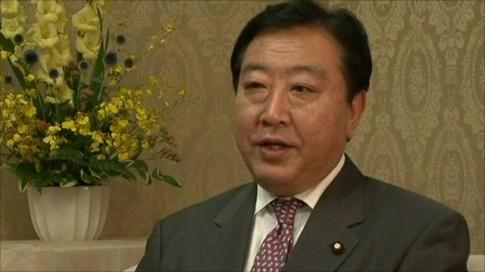Yoshihiko Noda, new Japanese PM

Japan’s finance minister Yoshihiko Noda is set to become the nation’s sixth prime minister in five years, but he faces a daunting task trying to unite his divided ruling party and lead the country’s recovery from the devastating tsunami.
By Danielle Demetriou, and Julian Ryall in Tokyo
Mr Noda, 54, overcame competition from four other contenders to be voted president of the ruling centre-left Democratic Party of Japan (DPJ) by its lawmaker members.
The politician will replace the outgoing premier Naoto Kan after his popularity slumped significantly over his handling of the March 11 earthquake, tsunami and nuclear disaster.
No sooner had Noda been elected however, than questions were being asked about whether he will be able to pull the badly fractured DPJ together again and make progress on the pressing issues that his new government will face.
The Yomiuri newspaper suggested that if the new prime minister is not able to unite the factions, then his administration may be as similarly short-lived as the last five, all of which have lasted around a year.
Mr Noda is already in the bad books of Ichiro Ozawa, the party’s kingmaker, who supported his opponent in the run-off vote, and there is the sense that the public will quickly grow tired of the government if it spends most of its time wrapped up in internal quarrels rather than focusing its energies on the plight of the people in the disaster-hit north of the country, trying to get the economy back on track and dealing with reform of the taxation and welfare systems.
Mr Noda defeated the trade and industry minister Banri Kaieda by 215 to 177 in a run-off vote taken by party members after no clear winner emerged from the first round.
Other contenders who were defeated round one included the popular former foreign minister Seiji Maehara, the forestry and fisheries minister Michihiko Kano and the former land and transport minister Sumio Mabuchi.
Mr Noda comes to power at a critical time for Japan which faces the task of reconstructing of the earthquake and tsunami-hit northeast region as well as resolving the world’s worst nuclear crisis since Chernobyl.
A soaring yen threatening exports, a fractured party and a gridlocked parliament are among other issues that Mr Noda will inherit from his predecessor when he becomes prime minister, which is expected to take place on Tuesday.
The incoming premier has said that Japan should effectively phase out nuclear power over 40 years, however, he also advocates restarting off-line reactors after safety checks to avoid a power crunch.
Meanwhile, his reputation as a fiscal hawk and his constant calls for strong reforms to reign in ballooning public debt are likely to ensure his new position is welcomed in financial markets.
However, sceptics may be concerned as to whether Mr Noda, who has been finance minister since June last year, will display the strong leadership qualities for which Japan has long craved.
The election for DPJ leadership has also highlighted the extent to which the ruling party is deeply fractured in allegiances, with voters strictly split between allies and opponents of Ichiro Ozawa, the political mastermind known as the “shadow shogun”.
Mr Ozawa, who remains a powerful member of the party despite awaiting trial in October for charges relating to a political donation scandal, backed the defeated trade minister while Mr Noda was supported by his critics.
Faced with such issues, political experts expressed scepticism as to whether Mr Noda would last significantly longer than his five predecessors, none of whom held on to power for little longer than a year.
Jeffrey Kingston, director of Asian Studies at Temple University, said: “I don’t think he’ll last a whole year, but who knows ... Noda has inherited all the same problems -- a divided parliament, a divided party, a strong yen, a Tohoku (northeastern Japan) desperate for progress on reconstruction and an early end to the nuclear crisis. I think the honeymoon will be very short-lived.” Telegraph




 del.icio.us
del.icio.us Digg
Digg

Post your comment